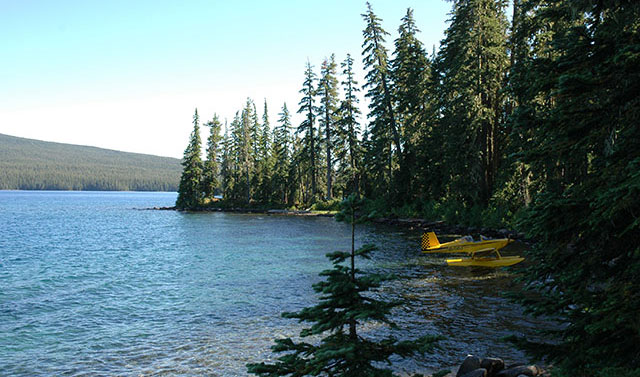 Pilots are urged to attend a Jan. 31 hearing to help preserve floatplane access to Waldo Lake. Photo courtesy Columbia Seaplane Pilots Association.
Pilots are urged to attend a Jan. 31 hearing to help preserve floatplane access to Waldo Lake. Photo courtesy Columbia Seaplane Pilots Association.
Preserving seaplane access regained after pilots and aviation groups rallied to oppose a ban on flights to and from Waldo Lake in the Cascades will require one final push. The Oregon Aviation Board has scheduled a Jan. 31 hearing in Springfield, Ore., to consider making permanent the temporary rule enacted in 2012 that allows aviation access.
AOPA joined the Columbia Seaplane Pilots Association, the Oregon Pilots Association, the Recreational Aviation Foundation, and local pilots in opposing a ban imposed by the Oregon State Marine Board in 2010. That board, facing legal action by CSPA, acknowledged it did not have jurisdiction to ban floatplanes, and access was restored in 2012 on a temporary basis. CSPA has noted that Waldo Lake, in addition to being an attractive destination, is also a located on a principal cross-country route through the Cascades, and access is essential to allow pilots to make stops in case of inclement weather, passenger illness, or other situations that can prompt a precautionary or emergency landing.
The hearing will convene at 6 p.m. Pacific Standard Time Jan. 31 in the Willamalane Center, Ken Long Conference Room, 250 South 32nd Street, Springfield, Ore., and members are urged to show up and show support. For those unable to attend, comments can be mailed to Mark Gardiner, Chairman, Oregon State Aviation Board, 3040 25th St. SE, Salem, OR 97302-1125 or emailed .
The temporary rules specify what portions of the lake floatplanes may use, and require pilots to report Waldo Lake arrivals and departures after the fact. Inspection for invasive species is also part of the routine, along with noise abatement procedures. Collectively, aviators have embraced the temporary rule. AOPA Northwest Mountain Regional Manager David Ulane wrote Jan. 15 in support of making that rule permanent:
“As you know, many other public entities, including the U.S. Forest Service, Bureau of Land Management and the National Park service have recognized the importance and minimal impact of floatplane operations, and have safely and reasonably accommodated them within their boundaries,” Ulane wrote on behalf of AOPA. “We are supportive of the Aviation Board’s desire to do the same with the proposed rule.”



